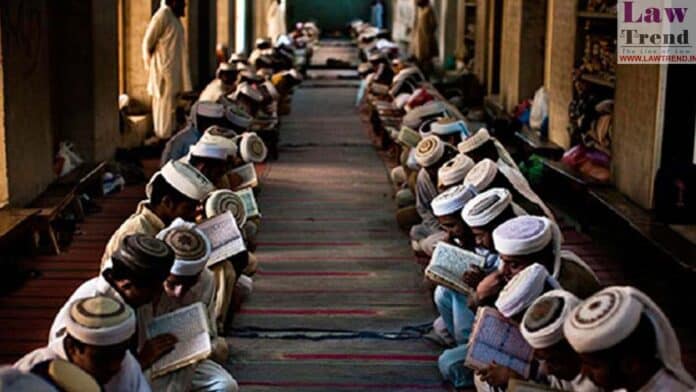In a significant statement to the Supreme Court, the National Commission for Protection of Child Rights (NCPCR) has expressed concerns over the educational model of madrassas, labeling them as “unsuitable” for providing “proper education” to children. The child rights body’s submissions highlighted that the education offered in these institutions does not meet the comprehensive standards set by the Right to Education Act (RTE).
The NCPCR argued that children studying in madrassas are often deprived of fundamental educational entitlements such as midday meals, uniforms, and a standardized curriculum, which are guaranteed under the RTE Act. The commission criticized the madrassas for using NCERT books merely as a “guise” and not ensuring formal and quality education.
According to the NCPCR, the operation of madrassas is arbitrary and violates the constitutional mandate, the RTE Act, and the Juvenile Justice Act of 2015. They pointed out that such institutions do not provide an environment conducive to holistic development, lacking in planning for social events or extracurricular activities that facilitate experiential learning.

The statement comes amidst legal scrutiny following an April 5 Supreme Court order that stayed a decision by the Allahabad High Court, which had declared the Uttar Pradesh Board of Madarsa Education Act, 2004, as “unconstitutional.” The High Court had criticized the act for being violative of secular principles, prompting a reevaluation of the role and regulation of madrassas in the Indian educational landscape.
The apex court, led by Chief Justice D Y Chandrachud, acknowledged the need for closer examination of the issues raised, especially considering the potential impact on approximately 1.7 million madrassa students across the country. The Supreme Court has issued notices to various stakeholders, including the Centre and the Uttar Pradesh government, to delve deeper into the implications of the High Court’s findings and the broader questions about educational standards in religious institutions.







